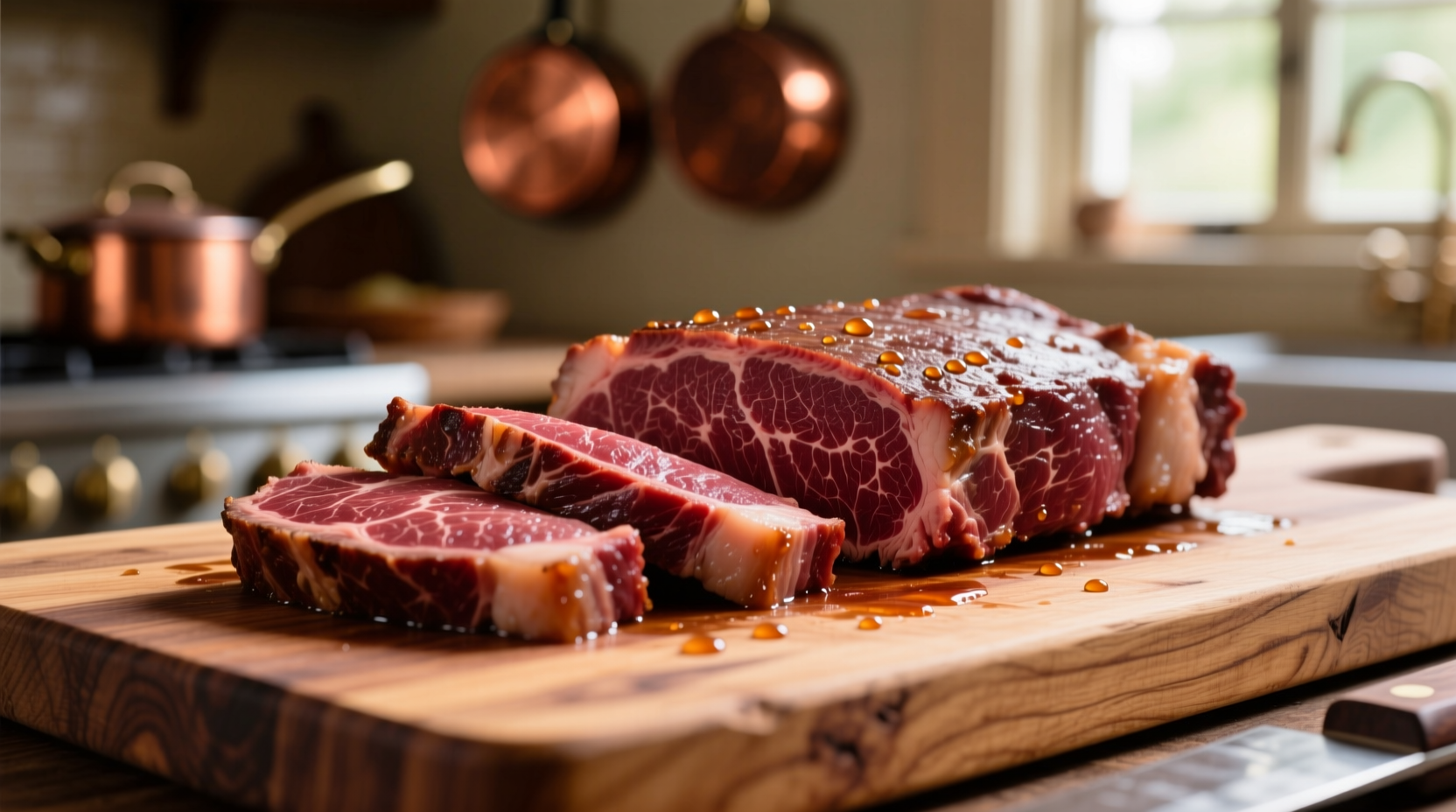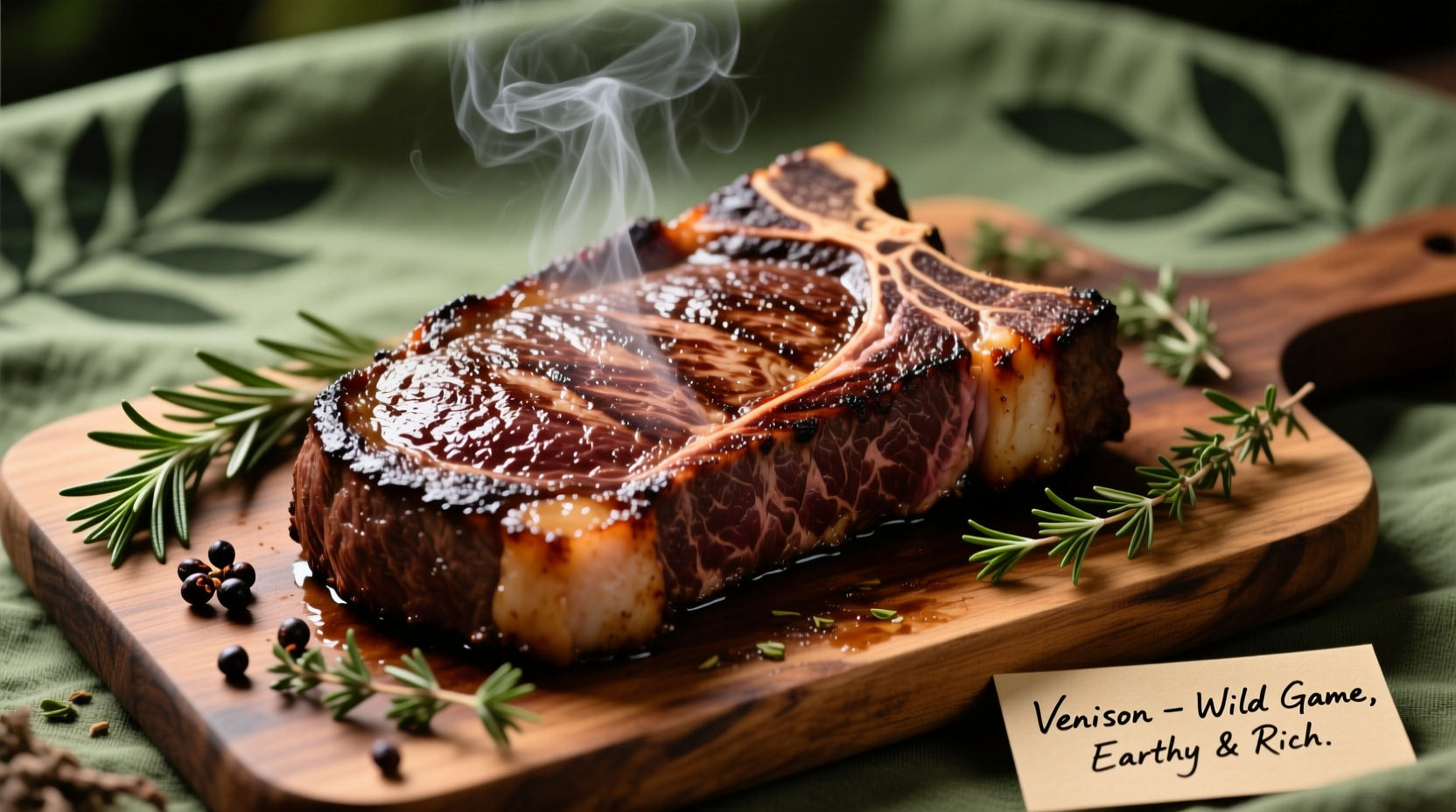Understanding Venison's Unique Flavor Profile
If you've never tasted venison before, you're probably wondering what does venison taste like compared to beef. Unlike domesticated cattle, deer are wild animals with active lifestyles and natural diets, which creates a meat that's leaner and more flavorful. Venison's signature taste comes from its higher iron content and the animal's natural foraging habits.
The flavor can be described as:
- Earthy - with notes reminiscent of mushrooms or forest floors
- Gamey - a distinctive richness that some describe as metallic or iron-like
- Lean - significantly less fat than beef, resulting in a cleaner taste
- Sweet - particularly in younger deer or those with acorn-rich diets
What Makes Venison Taste Different?
Several factors influence why does venison taste gamey and how pronounced those flavors become:
| Factor | Effect on Flavor | Best Practices |
|---|---|---|
| Deer's Diet | Acorns = sweeter; sagebrush = stronger gamey flavor | Process during mast season for milder taste |
| Age of Animal | Fawns = delicate; mature bucks = stronger flavor | Choose younger animals for first-time tasters |
| Processing Method | Field dressing speed affects gameiness | Cool meat immediately after harvest |
| Cooking Technique | Overcooking intensifies gamey notes | Cook to medium-rare maximum (130-135°F) |
According to the USDA Food Safety and Inspection Service, wild game meat like venison contains 50% less fat than conventional beef, which directly impacts its flavor concentration and cooking requirements (USDA FSIS).
Venison vs Beef: A Flavor Comparison
Many people ask does venison taste like beef, but the comparison only goes so far. While both are red meats, venison's flavor profile is distinctly different:
- Fat content: Venison has minimal marbling, making it leaner but requiring careful cooking to prevent dryness
- Iron content: Venison contains significantly more iron, contributing to its metallic undertones
- Flavor intensity: Venison's taste is more concentrated and complex than beef's milder profile
- Texture: Properly prepared venison is tender, but can become tough if overcooked due to low fat content

How to Prepare Venison for Best Flavor
Professional chefs know that how to reduce gamey taste in venison starts long before cooking. The University of Wisconsin Extension recommends proper field dressing within 30 minutes of harvest to minimize gamey flavors caused by improper cooling (UW Extension).
For home cooks, these preparation techniques make a significant difference:
- Dry aging: 7-14 days improves tenderness and mellowing strong flavors
- Marinating: Acidic components like buttermilk or vinegar-based marinades reduce gameiness
- Proper cooking temperature: Never cook beyond medium-rare (130-135°F)
- Fat supplementation: Wrap with bacon or add beef fat during cooking for moisture
Regional Variations in Venison Flavor
The taste of venison varies significantly by region due to differences in how does deer diet affect venison taste. Deer in agricultural areas with corn-rich diets produce milder meat than those in forested regions eating acorns and browse.
A study by the Cornell University Department of Natural Resources found that venison from deer consuming primarily mast crops (acorns, apples) had 23% less perceived gameiness than those with browse-heavy diets (Cornell Wildlife Science).
Cooking Tips for First-Time Venison Eaters
If you're trying venison for the first time, start with these approachable preparations that highlight what is the flavor profile of venison without overwhelming your palate:
- Tartare preparation: Fresh, high-quality venison served raw with capers and cornichons
- Medallions with berry sauce: The sweetness balances venison's earthiness
- Ground venison burgers: Mix with 20% pork fat for familiar texture
- Slow-cooked stews: Braising tenderizes tougher cuts while mellowing flavors
Remember that proper handling makes all the difference in how does cooking method affect venison taste. Overcooking is the most common mistake that turns potentially delicious venison into a tough, overly gamey experience.











 浙公网安备
33010002000092号
浙公网安备
33010002000092号 浙B2-20120091-4
浙B2-20120091-4